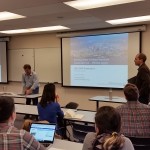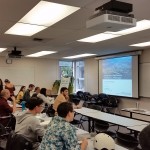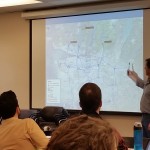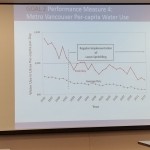On October 29th, the School of Community and Regional Planning (SCARP) hosted David Dunkley from Metro Vancouver as part of the Noon Hour Lecture series. David Dunkley, a professional Geoscientist working at Metro’s Water Policy and Planning Division of the Water Services Department, presented on the region’s approach to managing water in the face of climate change and population growth.
The talk, open to the public, was attended by students and faculty from multiple disciplines, representing a variety of backgrounds and levels of of water expertise. Jordi Honey-Rosés, director of the Water Planning Lab, moderated the event, including the passionate Q&A session that concluded the talk.
Given the diverse backgrounds of attendees, David Dunkley started his presentation by painting a general picture of how water flows across the region. Three mountainous watersheds—the Capilano, Seymour and Coquitlam—are protected from public use to minimize any risks of contaminating the 585km2 of water-collecting land and forest.
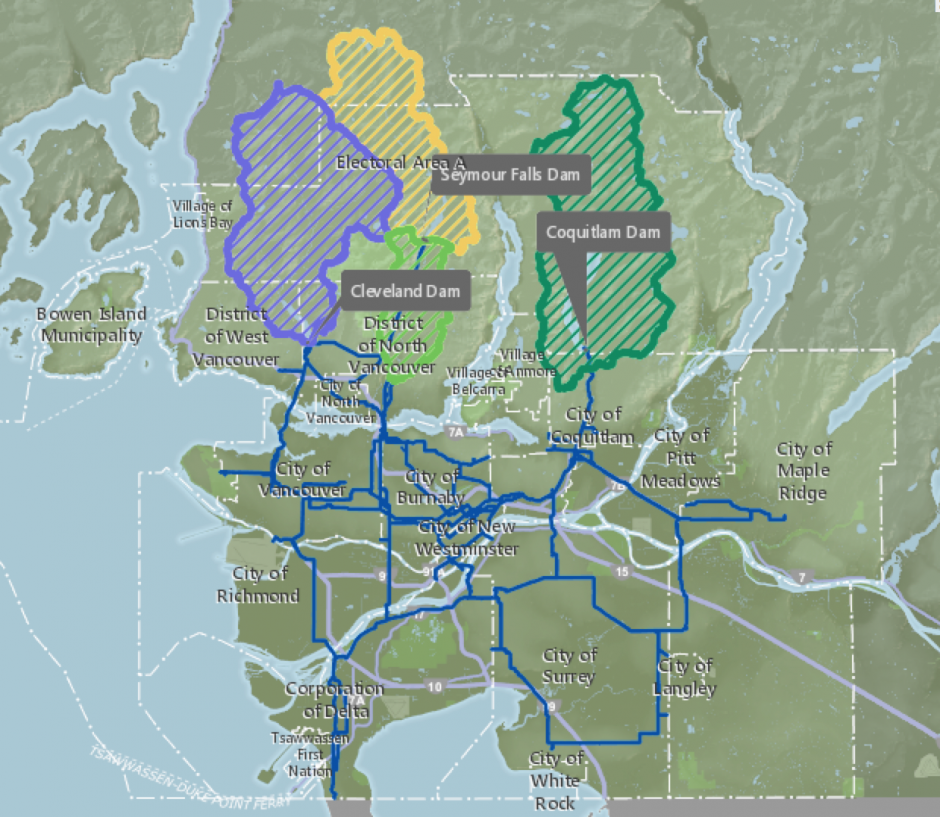
Figure 1: Map of Metro Vancouver’s Capilano, Seymour, and Coquitlam Watersheds (purple, yellow and green shaded areas, respectively), and Water Mains (blue lines). Source: http://gis.metrovancouver.org/maps/water
He also explained the relationship between Metro Vancouver, made up of municipal elected officials, and Municipalities when it comes to supplying and managing water—as Metro Vancouver sells water wholesale to municipalities, it manages neither the pipes within the cities that deliver water to residents, nor the conservation programs that are undertaken to reduce water consumption. For that end of water distribution and demand management, municipalities have their own departments and plans.
When it comes to droughts, however, the region acts in concert. Dunkley explained the impact of uncertainty with our climate on our water systems by comparing predictions from a decade ago with observations today. He cited a study by Metro Vancouver that predicted that the April 1st snowline would move from an average 759m altitude to 1074m by 2090—yet this is where the snowline was on April 1st, 2015, with significant implications to water management and conservation in the region
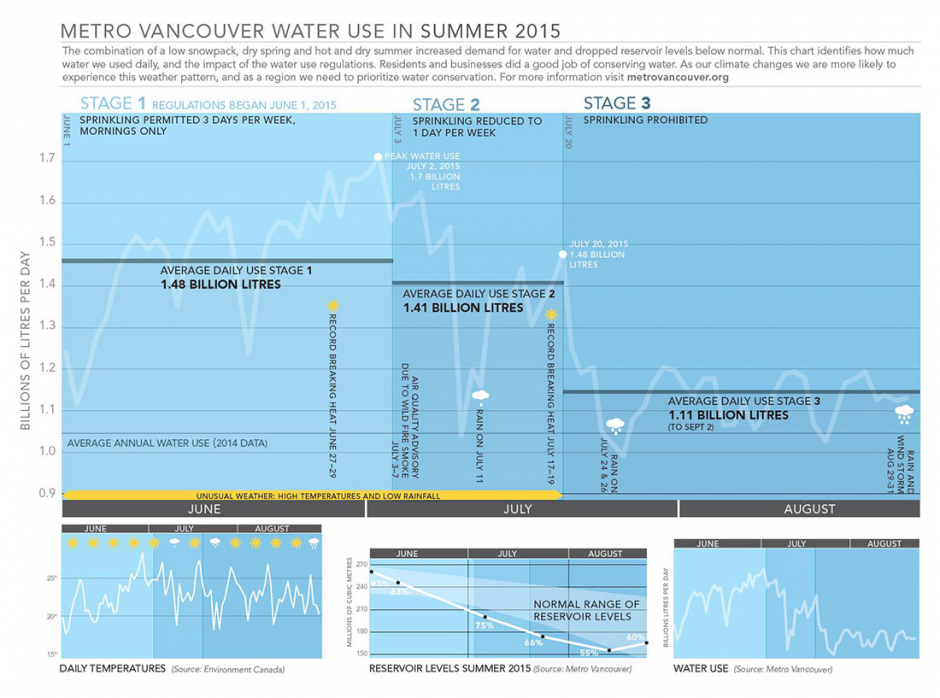
Figure 2: Metro Vancouver’s Summer Water Consumption. Source: http://www.metrovancouver.org/services/water/conservation-reservoir-levels/lawn-sprinkling/PublishingImages/DailyWaterConsumption2015InfoGraph.jpg
In July, Metro Vancouver adopted Stage three watering restrictions that included a ban on sprinkling. As the chart Dunkley showed illustrates (above), moving from stage one (sprinkling three times a week, among other measures) to stage two (sprinkling once a week) led to a small but significant drop in water use, whereas moving from stage two to three led to a much larger, and faster, reduction in water use across the region. A second slide, below, showed the patchwork of metering practices across the region, which David Dunkley used to explain why, although we understand the system-wide drop in water use, we do not yet have a clear understanding of how the water conservation is spread out across the region’s users.
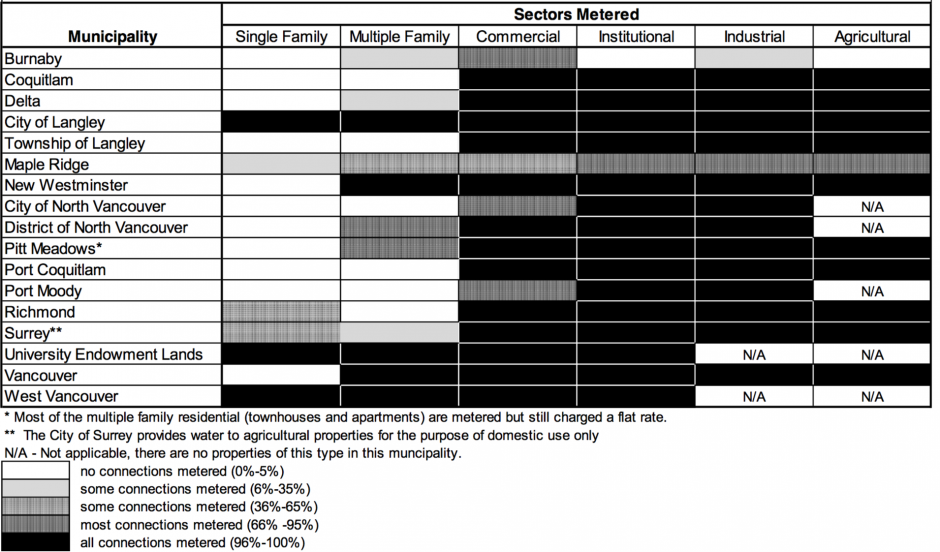
Table 1: Municipal Metering Practices, 2008 Source: Water Demand by Sector—2012 Final Report. Metro Vancouver
One audience member asked what could be done about the potential conflict of interest that lies in that relationship, where elected municipal officials making region-wide decisions about water supply and pricing could lead to a politically-popular pricing system that does not fully account for all the ecological and economic costs of supplying water. Dunkley replied that despite the unusual governance make-up of Metro Vancouver, “It works. Elected municipal officials appointed to Metro take their promise to make decisions with the region’s interests in mind seriously.”
In addition to showing photos of one of the last remaining glaciers in the Coquitlam Watershed, which has diminished within our lifetime, Dunkley showed a short video by Metro Vancouver. Entitled “Don’t Waste a Drop,” it communicates in under two minutes the main aspects of our water system, and why there is a strong role for residential water conservation in ensuring its sustainability.
After his presentation, David Dunkley graciously remained to answer students’ and professors’ questions on a one-on-one basis.
Special thank you to David Dunkley and Metro Vancouver, for taking time to present out at UBC. Thanks also to the School of Community and Regional Planning’s Planning Student’s Association for putting on the lecture series.
By David Gill
